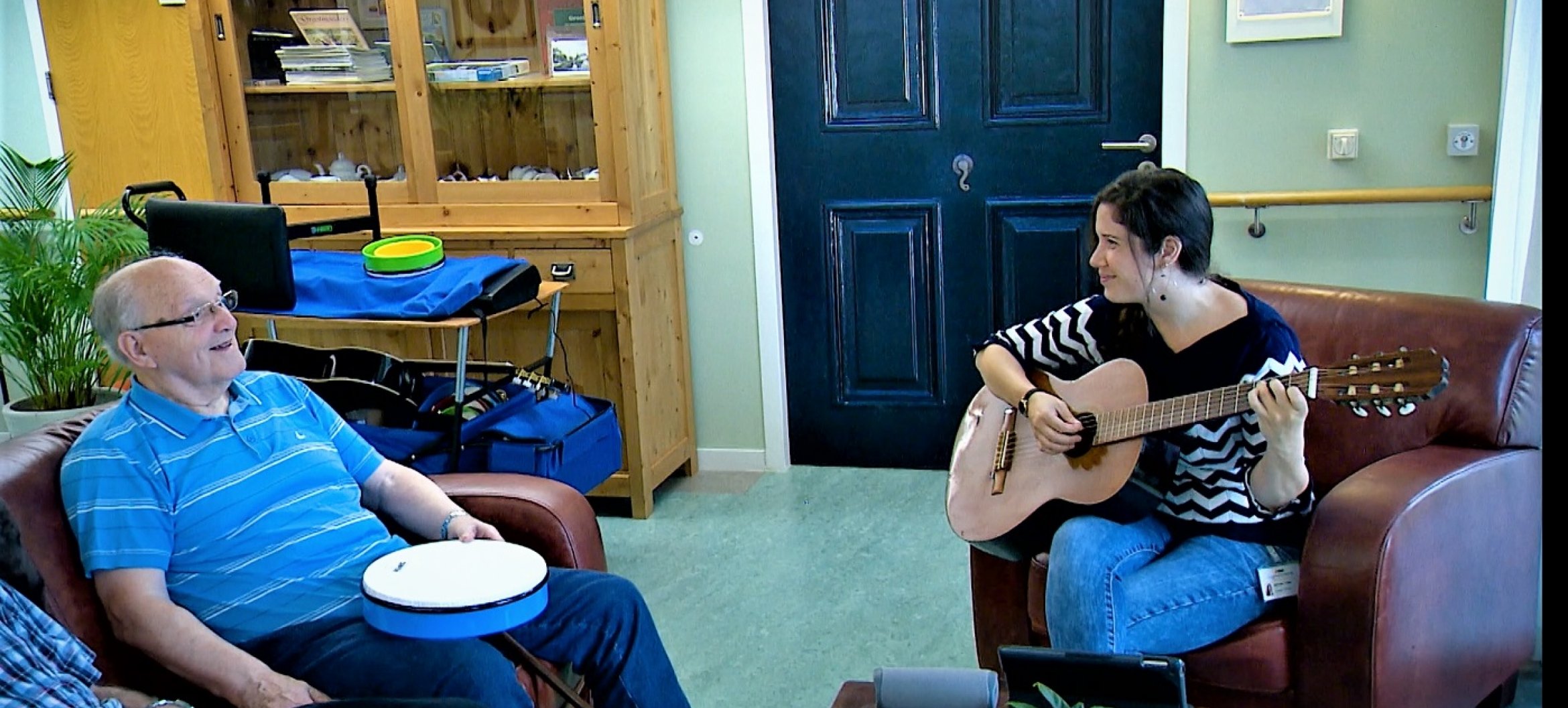Djemida Tönjes provides music therapy to make people with dementia feel better
- Music
“How can I reach these people with music? When you’re no longer able to speak, music is an alternative. And I think that’s such a beautiful way to help.” Djemida Tönjes is doing the Master of Music Therapy at ArtEZ and in the video below she shares her experiences with the residents of Zorggroep Noorderboog in Meppel. “It’s really about finding out how everyone is feeling that morning, what’s happening in the department. And then you adjust and use that information as a music therapist.”

Djemida was missing the evidence-based work as a music therapist. She missed using science to support the decisions she has to make. She continues: “You can tell that people know what music therapy is, but there are still a lot of question marks. When you work in a big organization, it’s particularlyimportant to be able to express yourself well and justify what you do. It’s important to have the ability to scientifically substantiate the things you use as a music therapist. I felt that I could get a lot more out of being a music therapist. So, for me, the decision to do the master was fairly easy.”
Camila Pfeiffer, head of the Master of Music Therapy, says in the video that during this master you’re trained to measure the effect of your intervention, to work with groups, to work with a team on a research project, and to be able to explain why you’re doing what you’re doing in music therapy. During the Master you’re trained to really think about the details and about the impact of the therapy on people. Ans of course there’s also room to develop yourself and find your mission.
The Master of Music Therapy at ArtEZ is nationally recognized by the NVAO (National Flemish Accreditation Organization). You develop your musical, clinical and research skills. There’s a special focus on neuroscience and developing cultural sensitivity and community music therapy projects. You research the therapeutic effect of music on people's health and you communicate your results to a wide audience. After you graduate, you can work in elderly care, mental health care, developing countries, refugee camps, hospitals or you can work as a researcher.
Learn more about the Master of Music Therapy


